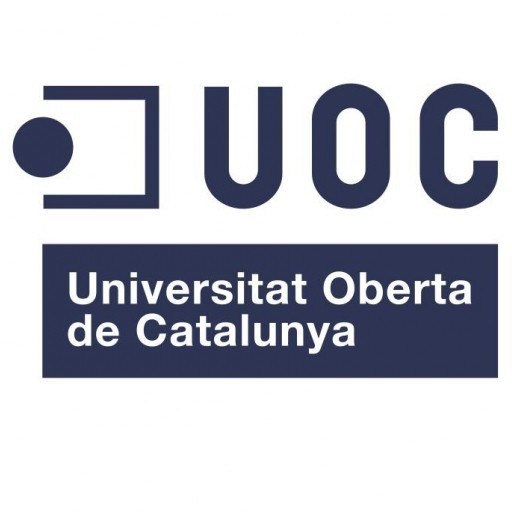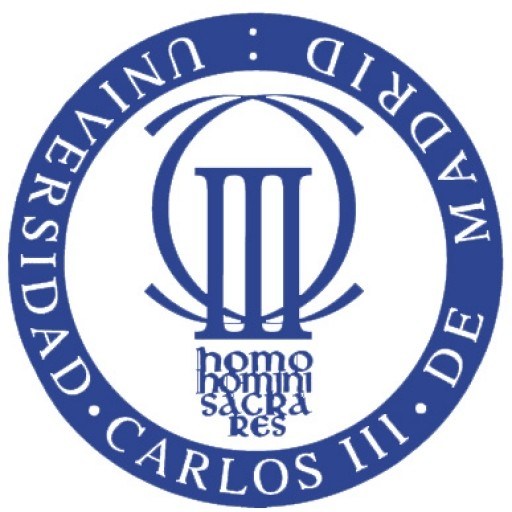Photos of university / #univcadiz
The Degree in Oceanography at the University of Cadiz offers a comprehensive and interdisciplinary education designed to prepare students for a diverse range of careers related to the marine environment. This program equips students with a solid foundation in the physical, chemical, biological, and geological processes that shape the oceans and coastal regions. Throughout the course of study, students will engage with a variety of scientific disciplines, including Marine Physics, Marine Chemistry, Marine Biology, and Marine Geology, enabling them to understand the complex interactions within marine ecosystems and their relevance to global environmental issues.
The curriculum emphasizes both theoretical knowledge and practical skills. Students will participate in laboratory work, field activities, and research projects to develop hands-on experience in marine data collection, analysis, and interpretation. Courses are designed to foster critical thinking and problem-solving abilities, essential for addressing challenges such as climate change, sea-level rise, pollution, and sustainable resource management. The program also highlights the importance of technological tools in oceanography, including remote sensing, geographic information systems (GIS), and ocean modeling.
Students benefit from the university's strong links with regional and international marine research institutions, providing opportunities for internships, collaborative research, and participation in scientific cruises. This international and practical perspective prepares graduates for careers in environmental consultancy, marine resource management, scientific research, and policy development. The Degree in Oceanography aims to produce well-rounded professionals who are capable of contributing to sustainable ocean management and the preservation of marine biodiversity.
Upon completion of the program, graduates will have the necessary skills to analyze complex marine phenomena, communicate scientific findings effectively, and undertake autonomous research. They will be qualified to pursue further specialization through master's and doctoral studies or to enter the job market in sectors such as marine conservation, environmental consultancy, governmental agencies, and maritime industries. The University of Cadiz’s oceanography degree prioritizes an integrated approach to marine science education, ensuring that students are well-prepared to meet the scientific and societal challenges facing our oceans today.
The Bachelor of Science in Oceanography at the University of Cádiz offers a comprehensive and in-depth exploration of the marine environment, equipping students with essential knowledge and practical skills to understand the complex processes governing the oceans. This program is designed to provide a multidisciplinary approach, integrating principles from biology, geology, physics, chemistry, and environmental science to analyze marine ecosystems, oceanic phenomena, and the sustainable management of maritime resources. Throughout the course, students will engage in theoretical learning complemented by practical experiences, including laboratory work, field trips, and research projects, which foster a hands-on understanding of marine science applications. The curriculum covers a broad range of topics such as marine ecology, oceanography physics and chemistry, marine geology and geophysics, climate change impacts on oceans, and maritime policy and conservation strategies. Emphasis is placed on developing skills in data analysis, scientific communication, and the use of modern oceanographic instrumentation and software tools. Graduates of this program will be prepared for careers in marine research, environmental consultancy, resource management, and policy making, as well as opportunities for further academic study and research. The program also encourages student participation in national and international marine research initiatives, fostering a global perspective and collaboration skills. The University of Cádiz’s state-of-the-art laboratories and research facilities provide students with ideal environments to conduct experiments and participate in ongoing marine projects. Upon completion, students will have a solid foundation to contribute effectively to the resolution of contemporary oceanic challenges, promoting sustainable interaction with our planet’s vital marine resources.
Admission requirements for the Bachelor’s Degree in Oceanography at the University of Cádiz typically include a completed secondary education or equivalent qualification recognized by Spanish authorities. Prospective students must demonstrate their proficiency in Spanish, usually through a language certificate such as the DELE, if applicable, though some programs may be offered in English. Applicants are generally required to submit academic transcripts, a valid ID or passport, and a motivation letter outlining their interest in oceanography and related fields.
Academic prerequisites often encompass a strong background in sciences, particularly in Biology, Chemistry, Physics, and Mathematics. Some universities also consider extracurricular activities or relevant work experience in marine sciences or environmental research as advantageous during the selection process. International students must meet visa requirements and may need to provide a certified translation of their academic records, along with proof of financial means to support their studies.
The university may also implement an admissions process involving interviews or assessments to evaluate applicants’ motivation and suitability for the program. Language requirements are strictly enforced, with proficiency tests administered if necessary. For students from non-Spanish speaking countries, the program may be offered in English, requiring proof of English language proficiency, such as TOEFL or IELTS scores, depending on the specific language of instruction.
It is also common that the university encourages applicants to have basic computer skills and familiarity with scientific software pertinent to data analysis and modeling. Additionally, prospective students should be prepared to meet health and safety requirements imposed for participation in fieldwork, as practical training in marine environments is a fundamental component of the curriculum. The precise entry criteria may vary annually based on the university’s admission policies and the number of applicants, but adherence to the above-mentioned general prerequisites is typically essential for admission to the Oceanography program at the University of Cádiz.
The financing of the Bachelor’s Degree in Oceanography at the University of Cádiz can typically be supported through various channels available to students. As a public university in Spain, the University of Cádiz offers affordable tuition fees compared to private institutions, potentially reducing the financial burden on students. The affordability is complemented by the availability of government-funded grants and scholarships designed for both national and international students. These grants often cover a portion or the entirety of tuition fees and sometimes include living expenses, making higher education more accessible.
Students may also have access to student loan programs facilitated through Spanish financial institutions, which might offer favorable repayment terms and low-interest rates to support the costs associated with their studies. Additionally, the university has partnerships with regional industries and research centers related to marine sciences, which can sometimes provide funded internships or research assistant positions, enabling students to gain practical experience while earning income that can contribute toward their education expenses.
Furthermore, the Spanish government and European Union programs support higher education financing, such as Erasmus+, which allows students to study in various European countries or participate in exchange programs that often include financial support. International students are encouraged to explore scholarship opportunities offered by their governments or international organizations to facilitate study abroad in Spain.
On-campus employment is another avenue for students to finance their studies. The University of Cádiz provides part-time job opportunities within university facilities or research projects, which can help students manage their budgets better during the academic year. Additionally, some students may secure funding through research grants if they participate in research projects as part of their coursework or extracurricular activities.
Parents or guardians may also contribute to financing their children's education through personal savings or sponsorship. Private foundations and NGOs sometimes offer scholarships or financial aid for students pursuing marine sciences or related fields, which could include Oceanography students at the University of Cádiz.
Overall, the financing options available for students in the Oceanography program are diverse and designed to support students from various backgrounds. The combination of low tuition fees, governmental scholarships, EU mobility programs, part-time employment, and research funding opportunities offers comprehensive support that can significantly offset the costs associated with earning a degree in Oceanography at the University of Cádiz.
The Bachelor’s Degree in Oceanography at the University of Cadiz offers students a comprehensive education in the scientific study of the ocean, its ecosystems, and its interactions with the Earth’s environment. The program is designed to equip students with a solid foundation in marine sciences, including physical, chemical, biological, and geological aspects of the oceans. Throughout the course, students engage in both theoretical learning and practical activities, such as laboratory work, field trips, and research projects, enabling them to develop essential skills for analyzing and understanding oceanic processes.
The curriculum covers a wide range of topics, including ocean physics, marine chemistry, marine biology, and geosciences, alongside modules on maritime law, environmental policy, and conservation. This multidisciplinary approach ensures graduates are well-prepared for careers in research, environmental management, maritime industry, or further postgraduate studies. The program typically includes internships and collaboration with maritime institutions, research centers, and environmental agencies, providing students valuable real-world experience.
Students taking this program also have access to modern laboratories and facilities dedicated to marine science research, supporting their academic and practical development. The teaching staff comprises qualified researchers and professionals actively engaged in marine science projects, fostering an environment of innovative learning and inquiry. Graduates from the program are expected to contribute to the sustainable management of marine resources, marine conservation initiatives, and scientific research projects.
Moreover, the program emphasizes the development of transferable skills such as critical thinking, scientific communication, data analysis, and teamwork. These skills are vital for success in various maritime and environmental sectors. The multidisciplinary nature of the program also encourages interdisciplinary collaboration, which is crucial in addressing complex marine and environmental challenges.
The University of Cadiz’s strategic location near the Atlantic Ocean offers students unique opportunities for field research and environmental monitoring, providing practical exposure to real-world oceanographic conditions. The degree aims to prepare students for dynamic careers in oceanography, marine resource management, environmental consultancy, and research institutions, contributing significantly to the understanding and preservation of marine environments.




